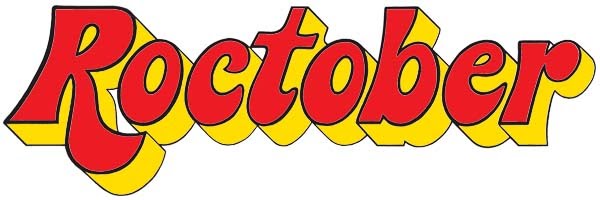Thursday, September 24, 2020
The Jack Kirby Collector
(TwoMorrows, 1994-present) My ridiculous reading project during COVID is journeying through the entire quarter-century run (so far) of The Jack Kirby Collector. A full sized magazine devoted to one artist should eventually be a bore, but because the King of Comics was so prolific and his career was so long and influential it is amazing how much there is to say about him. The most magnificent reason the magazine can continue to fascinate is that Kirby had a Xerox machine at home and copied the un-inked pencils of countless pages of art before sending them off for editing, inking, and publication (and in the case of his Superman drawings, to have someone with a more traditional style replace the face), so each issue presents breathtaking unseen artwork. But the real reason the magazine is so good is that John Morrow has proven to be one of those visionary publishers in the William M. Gaines/Hugh Hefner/Tim Yohannan mold who gets things done and makes them better than they need to be. Because every major artist admires Kirby there is no one Morrow can’t interview (or get to ink Kirby pencils), because he started in the 90s there were still Kirby collaborators from the 40s and 50s in early issues, and because Morrow has ambition and a sense of whimsy there are great themes executed every issue. One example of his innovation was in the year they did not have a Kirby panel at ComicCon Morrow interviewed a bunch of superstars and edited it together like a panel transcription, with imagined applause and Q&A from “the audience.” There is a long stretch in the middle of those years when the magazine was published at a massive Treasury size, and I am near the end of that run and kinda sad to see it go (though I have already read the issues from the last couple of years, so know the quality does not dip). There are great regular contributions from Mark Evanier, one of Kirby's closest collaborators during his post-Fantastic Four years, and my favorite features are reprints of whole fallen-into-public domain stories from the 50s and earlier. Oddly, the only disappointment is that Kirby (while a great storyteller, especially about his war years his friends al lsay) was not the best interview, as he was unreliable with facts, just wanted to please the folks around him, for a spell had an agenda when Marvel was viciously screwing him over, which colored his answers, and (for public interviews) was more into making the crowd happy than recording his story for history. That said, if there are kids r teens in the audience you can feel the good vibes through the transcriptions. He even drew a lot of local superfans into his DC comics in the 70s (who are interviewed as grown ups by TJKC). Can't wait to read the second half!
Subscribe to:
Post Comments (Atom)



No comments:
Post a Comment